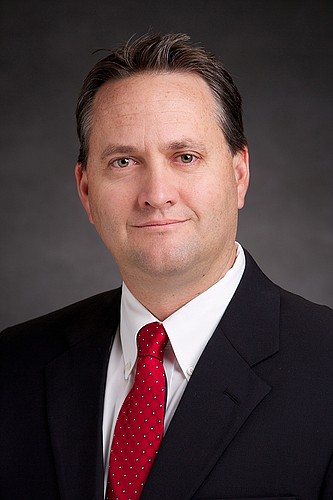- November 25, 2024
-
-
Loading

Loading

CHARLES MANN
Managing Partner
Pavese Law Firm
Fort Myers
Charles Mann is the managing partner of the Pavese Law Firm, which has offices in Fort Myers, Cape Coral and West Palm Beach. Mann, who specializes in commercial real estate and land use law, joined Pavese in 2000 and became a partner five years later. As part of his practice, Mann focuses on facets of the development process for large residential and mixed-use projects, along with securing entitlements and transferring development rights. A member of the Lee County Bar Association, Mann earned his juris doctorate from the Fredric G. Levin College of Law at the University of Florida.
What have been the biggest changes, from a legal perspective, to real estate since the end of last decade's recession?
The first thing that comes to mind is that no one was particularly risk averse during the last real estate runup, but now buyers are tending to be very risk averse from both a buying and a legal standpoint. So even if an investor becomes comfortable in buying a property, the legal issues that no one was concerned about a decade ago, everyone is now concerned about, and by that I mean specifically title issues, environmental exposure and other potential liabilities. The due diligence we've been doing since the end of the last recession is a lot more comprehensive than what we had typically done during the last cycle.
How have those changes manifest themselves along the Gulf Coast?
Clients are requiring a lot more explanation of their risks. For instance, a lot of the deals we've done the past several years have been the result of foreclosures. But case law takes a lot of time to work through, in regards to changes in approach, and so a lot of the case law that had been on the books had been very bank favorable as it applies to foreclosures. And that's made attorneys and title companies more concerned. You have to make sure all the i's are dotted and t's are crossed when dealing with foreclosure deals now more so than ever before. As an attorney, I've had to become a bit of a foreclosure expert because there are so many distressed deals to contend with, with varying degrees of complexity.
How have changes in lending — away from traditional lenders like banks to private equity firms and others — impacted real estate law practitioners?
Because buyers are facing greater constraints from banks, they've turned to private equity and alike to fill that void. So as an attorney, you now have to be well-versed in entity structure and the like. Previously, attorneys didn't deal with joint venture structures so much, but since private equity groups have different ideas of how ventures are supposed to work, attorneys have had to become more cautious and scrutinize documents for clients more than ever before in response. And foreign investment has become more prevalent. I'd say 30% to 40% of our clients now have major investors or financiers, and the money is coming from all over: South America, Canada, Russia, Asia and Europe. Since there are tax implications in many cases, we've had to become careful in dealing with foreign countries' laws, and we've had to learn about exchange rates and how money flows in from foreign lands.
What kinds of deals are your developer clients working on today?
Our clients are still doing a ton of residential projects, there are still apartments going in and senior-living projects going up and coming online. We're also still seeing hotel deals. Interesting, given all that development, we're not seeing new shopping centers being planned or constructed. We have a lot of clients and potential clients who ask about buying or redeveloping existing owner-occupied properties, like strip shopping centers, but those deals are hard to find.
What's your outlook for Gulf Coast real estate 18 months from now?
Interestingly, 18 months ago I would have said we would be seeing a slowdown now, to stabilize some of the development that's occurred, and we haven't. The markets are still really hot. Everyone seems to believe there has to be a slowdown over the next six to 18 months, but I don't hear a lot of concern that we're in a bubble or that a drastic drop is coming. And I think that's because much of the capital out there now has come from investors or projects are being self-financed. Developers aren't borrowing from banks. That's a completely different profile than we saw prior to the past recession.